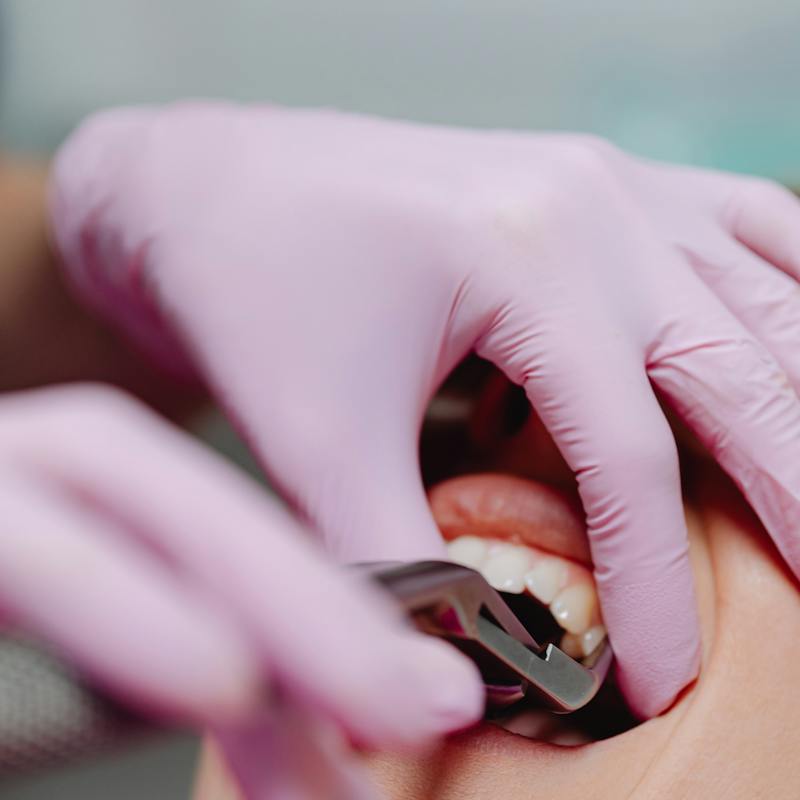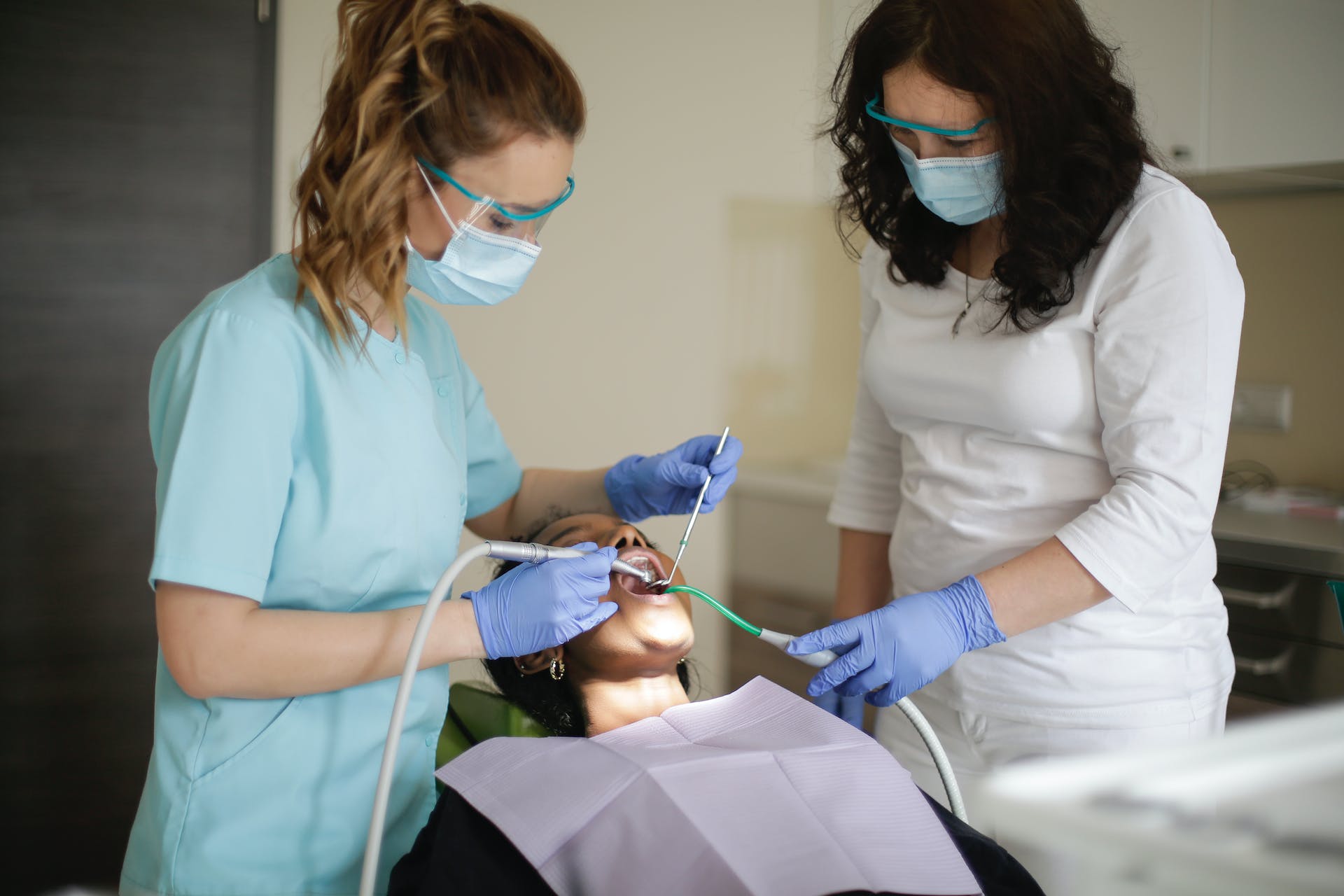Nov
16

Experiencing pain when biting down can be both distressing and disruptive to your everyday life, especially if it’s sudden and you’re experiencing severe pain every time you eat. This type of dental discomfort can stem from various causes, ranging from issues directly related to the teeth to broader oral health conditions, such as jaw problems. In the following article, we’re going to explore some common dental-related causes – as well as non-dental factors – that could be responsible for this pain, while also providing insights on when to seek professional help. Let’s take a look!
Dental-Related Causes
Tooth Decay and Cavities
Tooth decay is a primary cause of pain when biting down, and occurs when the enamel (the outer layer of the tooth) is eroded, often due to the buildup of plaque and tartar. This process can lead to cavities, aka small holes in the teeth that can grow larger over time. When you bite down, pressure is applied to these cavities, causing pain; the discomfort might be sharp and sudden, especially when eating hot, cold, or sweet foods. If you think you might be experiencing tooth decay, you can make an emergency appointment at one of our clinics in London for swift and expert treatment.
Dental Abscess
An abscess is another potential reason for pain in your mouth when biting down. Abscesses are balls of pus that form in the mouth due to bacteria and tooth decay, and warrant a dental emergency. If you suspect you have an abscess and it’s accompanied by a fever, chills, or feelings of weakness, you should head to your local A&E immediately, as you may need antibiotics to stop the infection from spreading.
Cracked or Fractured Teeth
Another common cause of pain when biting down is a cracked or fractured tooth; these cracks can occur due to various reasons, such as biting on something hard, trauma to the mouth, or gradual wear and tear (for example, from teeth grinding). A cracked tooth might not always be visible to the naked eye, but it can cause significant pain when pressure is applied. The pain is usually sharp and might occur only when biting in a certain way or on certain foods, and a cracked tooth always warrants a visit to the dentist.
Non-Dental Factors
Temporomandibular Joint (TMJ) Disorders
TMJ disorders affect the joint that connects your jawbone to your skull, and issues with this joint can cause pain not just in the joint itself but also in the teeth when biting down. Symptoms of TMJ disorders include pain in the jaw joint, a clicking or popping sound when moving the jaw, and difficulty in opening the mouth fully. This condition can be caused by various factors, including arthritis, jaw injury, or grinding of teeth.
Bruxism (Teeth Grinding)
Bruxism, or teeth grinding, is a habit that can lead to pain when biting down, and is often actually linked with TMJ disorders. It also often occurs unconsciously, especially during sleep, where the constant grinding puts undue stress on the teeth and jaw muscles, leading to pain. Over time, bruxism can also wear down tooth enamel, making the teeth more sensitive and prone to pain.
Impacted Wisdom Teeth
Impacted wisdom teeth, which are wisdom teeth that don’t have enough room to emerge or develop normally, can also cause pain when biting down. This is because they may grow at an angle and push against other teeth, leading to discomfort and pain, especially when biting or chewing food.

Diagnosing the Cause
To identify the exact reason behind the pain when biting down, a thorough dental examination is necessary. Your dentist will likely take X-rays to get a clearer picture of what’s happening beneath the surface of your gums, and they may also perform tests to determine the health of your teeth and gums, including checking for sensitivity, signs of decay, or gum disease. In some cases, particularly if a TMJ disorder or bruxism is suspected, your dentist might refer you to a specialist for further evaluation.
Treatment Options
The treatment for pain when biting down depends on the underlying cause:
- For Tooth Decay and Cavities: The primary treatment for tooth decay is filling the cavity or, in more severe cases, performing a root canal to remove infected dental pulp.
- For Cracked or Fractured Teeth: For fractured teeth, treatment can range from bonding or a dental crown to protect the tooth to root canal therapy if the crack has reached the tooth’s pulp.
- For TMJ Disorders: Treatment for TMJ might include bite guards, physical therapy, medications, or in severe cases, surgery.
- For Bruxism: Custom-made night guards can be effective in preventing grinding during sleep, and although these can be quite expensive, some clinics may offer installment payment plans.
- For Impacted Wisdom Teeth: Extraction is often the recommended solution to alleviate pain and prevent further dental issues, although some dentists may be wary to extract wisdom teeth in those over 30.
When to Seek Professional Help
If you’re experiencing pain when biting down, it’s important to consult with your dentist as soon as possible. Early diagnosis and treatment can prevent the problem from worsening and can provide relief from pain. If the pain is severe, persists, or is accompanied by swelling, fever, or signs of infection, seek immediate dental care.
The Bottom Line
Ultimately, pain when biting down should not be ignored, as it is often a symptom of a deeper dental issue. Understanding the potential causes and seeking timely professional advice are key to maintaining your oral health and comfort. Regular dental check-ups can also help in early detection and prevention of such problems. Remember, taking proactive steps in your dental care is essential for a healthy and pain-free smile.










